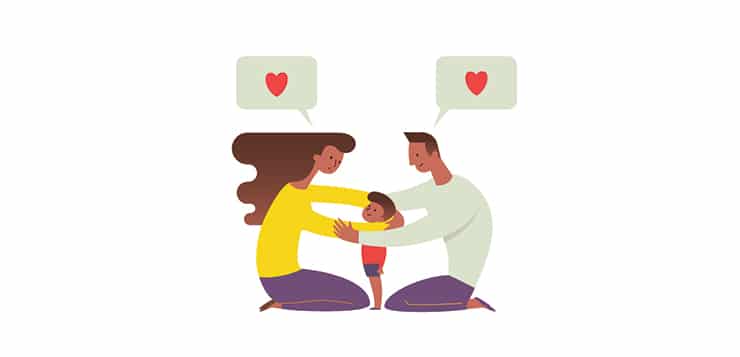By Maryam Abdullah | April 24, 2018
When was the last time you beat yourself up for a parenting failure?
Perhaps your daughter got a D+ on the math test—and you regret some harsh words. Maybe you’re telling yourself that you bungled advice to your fifth-grader about how to handle an annoying classmate. You couldn’t keep your promise to attend your son’s music recital—and there’s a voice in your head telling you that you’re a terrible parent.
But there’s an alternative to that harsh self-talk: self-compassion. According to researcher Kristin Neff, “self-compassion provides an island of calm, a refuge from the stormy seas of endless positive and negative self-judgment.” As she defines it, self-compassion entails three components:
“First, it requires self-kindness, that we be gentle and understanding with ourselves rather than harshly critical and judgmental.”
“Second, it requires recognition of our common humanity, feeling connected with others in the experience of life rather than feeling isolated and alienated by our suffering.”
“Third, it requires mindfulness—that we hold our experience in balanced awareness, rather than ignoring our pain or exaggerating it.”
How is self-compassion related to parenting? A recent study found that self-compassionate parents of adult children with developmental disabilities tend to have lower levels of stress and depression. In a 2015 study of parents of kids with autism, self-compassion is linked to more life satisfaction, hope, and re-engagement with life goals. Another study found that self-compassion may act as a shield against internalizing stigma—the negative evaluations and feelings others have about parenting children with autism.
A recent study found that self-compassionate parents of adult children with developmental disabilities tend to have lower levels of stress and depression
A new study by Amy Mitchell and colleagues provided Australian mothers with self-compassion resources and exercises, such as imagining how you would support someone else, remembering that you are not alone, and giving yourself a small act of kindness. Mothers who used the resources reported feeling more self-compassionate compared to mothers who did not—and they were less stressed and more satisfied with breastfeeding after the intervention.
Taken together, these studies suggest self-compassion may be a resource for resiliency and a protective buffer against both internal and external criticism. Can parents learn to be more self-compassionate? Of course. Here are three steps you can take to build compassion for yourself.
1. Take routine self-compassion breaks
During the exhaustion and confusion of being a first-time parent, you may wonder how they even let you leave the hospital with the baby! Why isn’t breastfeeding magically easy? Where did you put the diapers? I stink! When am I going to be able to take another shower?
Those are the moments when you might try to take a self-compassion break. What does that look like?
First, accept the moment of suffering with a statement like, “This hurts.” Next, acknowledge that other first-time parents have felt this way—probably every first-time parent in the history of world! Last, offer yourself kindness, such as by saying, “May I give myself the compassion that I need as I try to care for my baby.”
Of course, it’s not always possible to take a break when you’re struggling to calm a weeping toddler. In that case, take a moment after the crisis has passed to give yourself a few kind words. Neff also recommends putting your hand over your heart, as a gesture of comfort toward yourself, or even giving yourself a hug. That might sound strange—but try it. See if it helps.
For additional examples and tips: https://www.mindful.org/three-simple-ways-parents-can-practice-self-compassion/
